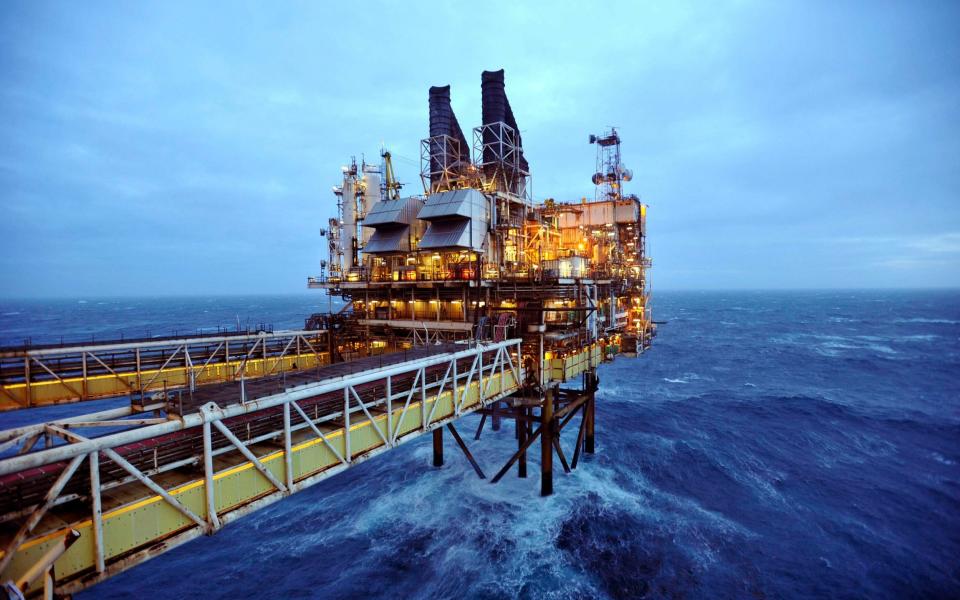Why a windfall tax on oil companies will be a disaster for your bank balance

A windfall tax on oil companies to fund cheaper energy bills for consumers could in fact leave people worse off and drive up the price of gas in the future.
There are fears pensioners and savers could be left worse off if popular dividend-paying firms such as Shell and BP are forced to trim their shareholder payouts to offset higher duties on their profits.
It comes amid growing pressure on the Chancellor to claw excess profits made by big energy companies as oil and gas prices have soared due to global supply shortages.
Labour has proposed increasing tax on the profits of North Sea oil firms by 10 percentage points, which it has said could raise up to £3bn to be passed onto families to help pay their bills. The proposal has won more backers amid rising energy and oil costs, which have helped to doubled BP's profits for the first three months of the year to £5bn.
But the money the suggested levy would raise is just a fraction of the £9.1bn energy bills rebate support the Chancellor announced for households in February. The cost of electricity and gas in 2022-23 is greater still, expected to be £38bn more than the previous year, according to Aurora Energy Research.
Danielle Boxall of the Taxpayers’ Alliance pressure group said any money raised would be “a drop in the ocean compared to the hit taxpayers would face in the long run” and would not go far enough to provide broad support, including help for the struggling middle classes.
She said there would also be a knock on effect to share prices and the dividend payments many retirees and pension funds depend on.
British savers are heavily dependent on oil firms for income. In 2019, before the pandemic forced Shell to cut its dividend for the first time since the Second World War, fossil fuel firms in the oil, gas and mining sectors were responsible for paying close to a quarter of payouts across the London stock market.
So far this year oil firms have increased payouts by almost a third to and are likely to hit close to £10bn this year, although this is still around half of their pre-pandemic size, according to the Link dividend monitor.
Laura Suter of brokers AJ Bell said any money oil companies were spending on higher taxes was money that they “either can’t pay out as dividends or can’t use to reinvest back into the business”. “Considering the bosses at BP have already said that any windfall tax wouldn’t affect their investment plans, we can only assume that investors will ultimately foot the bill,” she added.
It would come at a time when pensioners and investors already face huge uncertainty over the value of the savings, as markets swing wildly on recession fears.
Others have pointed out North Sea oil firms already face higher taxes: corporation tax at a rate of 30pc, plus a 10pc supplementary charge – more than double the standard 19pc corporation tax rate.
Paul Jourdan of Amati Global Investors said implementing a retrospective tax would damage future investment and oil exploration, which ultimately could feed through into higher utility prices.
“While a windfall tax would raise a modest amount of revenue the Government has to think about the long term trade off. If we have less investment in our own energy we are forced to rely on dictators for our oil and gas. With demand unchanged and supply falling, the result will be higher prices and higher levels of fuel poverty,” he said.
“We have the ability to produce around half of our own oil and gas over the next 25 years. This could fall to something more like 40pc if a tax is implemented.”

 Yahoo Finance
Yahoo Finance 